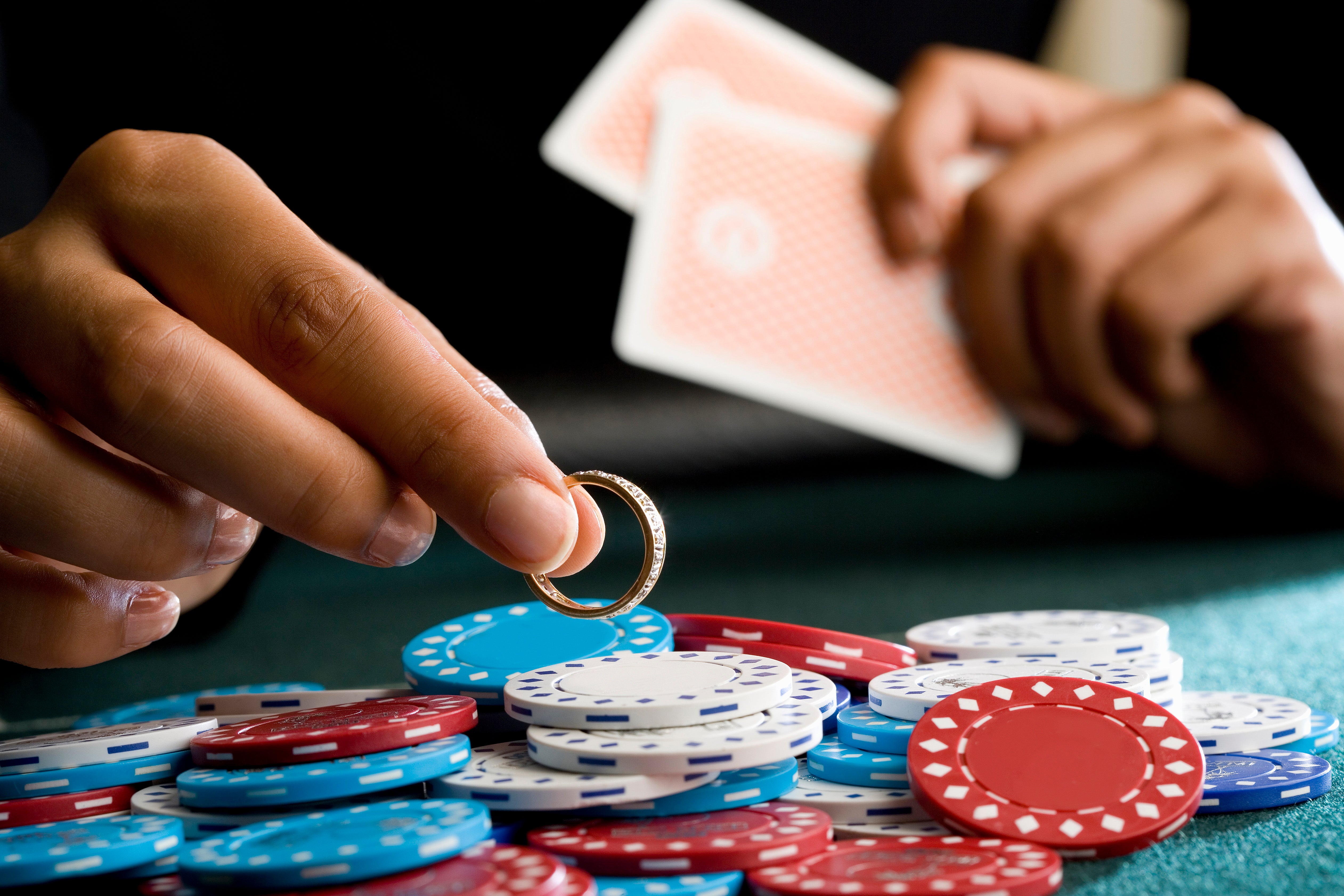Death By Gambling


Scott Stevens had a gambling problem. He lost his job after embezzling nearly four million dollars to fund his addiction, and yet he continued to gamble, accumulating massive debts. In 2012, the Ohio man committed suicide.

Stevens believed he had dug his family, a wife and three daughters, too deep of a hole to dig out of, and that suicide was the only option, The Atlantic reported. This is not uncommon. The National Council on Problem Gambling estimates that one in five addict gamblers attempt suicide, a rate higher than addicts of any other kind.
Casino buildings are designed to make people feel important and luxurious. Food, drink, and other amenities are all accessible without having to leave the building. The casino is “designed to be an all-absorbing environment that does not release its customers until they have exhausted their money.” They draw people like a fly to porch light in mid-June. They shimmer and shine and promise that you too can be a high roller.
Problem gambling is a mental health disorder, in which the individual can’t control the urge to gamble. Like any addiction, problem gambling can cause major disruptions in personal, professional, and family life. It can also precipitate serious financial difficulties. A mother of five was stabbed to death by her gambling addicted husband at their home in front of their children. Parvez Akhtar plunged a combat style knife into his 49-year-old wife Shaeen's chest.
It is the games themselves, though, which are the real threat. Casinos rely on electronic gaming machines, primarily slots and video poker. According to a 2010 American Gaming Association report, slots and video poker are responsible for almost 70 percent of casino revenues. These machines are designed to lure the player in with the speed of play, flashing lights, and bright sounds, numbing them to their losses.
As the saying goes, “The house always wins.” This phrase cemented in our common language because it’s true. Given enough time, a player will lose all of their money. According to The Atlantic, “Local regulations typically stipulate that machines must pay out 85 to 95 percent of the bets placed on them—which means that for every $100 inserted into the machine, on average, the player will lose $5 to $15.” Winning is impossible. Because of this, casinos are designed to maximize the amount of time players spend in front of these machines.
The casino system actively takes advantage of human vulnerabilities in order to maximize profit. A conservative estimation is that three to four million adults in the United States have a gambling disorder and that another five to eight million meets at least some of the American Psychiatric Association’s criteria for addiction. According to the Institute for American Values, between 40 to 60 percent of casino revenue comes from such problem gamblers and casinos are not blind to the source of their revenue.
According to Richard Daynard, a law professor at Northeastern University and the president of the Public Health Advocacy Institute, “The business plan for casinos is not based on the occasional gambler. The business plan for casinos is based on the addicted gambler.” Casinos create rewards and members programs, target people who gamble the most money with incentives and encouragement, and even loan money to people who have lost all that they currently have.
But this is a matter of personal responsibility, some will argue. Gambling does require a level of personal choice and responsibility, and it is not the role of government to intervene in every instance where a citizen can make a harmful choice. However the casino industry is not equivalent to the occasional wager or weekend poker game, it is a multi-billion dollar, exploitative business model. Casinos do not promote the economic flourishing of individuals or the common good. If one responsibility of government is to protect its citizens, especially vulnerable citizens, from predatory business practices, then there is a role here for government to intervene.
In the case of predatory gambling, state and local governments have failed in their responsibility to protect citizens. Even worse, though, is that they are active participants in these systems. State and local governments not only fail to protect their citizens from being preyed upon, but they are actually the predators. Casinos are built in tight partnership with government in order to raise public revenues. State and local governments share responsibility with the casino industry for maximizing revenue at the expense of vulnerable citizens.
This was the case made by Scott Stevens’ wife Stacey when she took the state of West Virginia and the company that designed video slot machines to court, alleging that the machines are inherently dangerous and designed to keep players playing past the point of being able to stop. The suit argued that the state had the duty to protect players from machines that were actively “eroding the players’ capacity to make reasoned decisions.” They argued that the casinos and the state were “creating problem gamblers as much as they are preying upon problem gamblers.”
In 2015, the court ruled that the state of West Virginia was not responsible and did not have a “duty of care” to protect players from compulsive gambling. It was only the court’s responsibility to enforce the laws of the state and in their judgment, “duty of care” did not fall under the law.
Death By Gambling Laws
Frighteningly, the court acknowledged that West Virginia’s laws are not neutral to gambling. The court observed three things in its ruling. First, that “such machines (video slots) exist in West Virginia for the express purpose of providing an economic boon to the State and its political subdivisions in the form of increased public revenues.” Casinos exist for the explicit purpose of raising public funds. It then says that “the State has so thoroughly integrated itself into the provision and operation of the machines on every level, in both a macro and a micro sense, that its involvement cannot readily be divorced from that of its licensees and key suppliers.” The court recognizes that the state government is not a bystander when it comes to casino gambling. Its financial interests are so intertwined with casinos that it is implicated in the business practices of casinos. Third, it observes that “the State has plainly weighed the societal costs of the machines—specifically including their contribution to compulsive gambling and the potential consequences thereof—against their economic benefits, and it has nonetheless elected to make them available to the public.” The court makes it clear that the state has decided that the not only will the predatory business model of the casino, reliant on electronic gaming machines, be permitted in the state, but will be relied uponby the state for public revenue.
/cdn.vox-cdn.com/uploads/chorus_asset/file/20027196/Virus_Outbreak_Pennsylvania_Casinos.jpg)
To put it succinctly, the state is willingly and knowingly participating in business practices that prey on its own citizens to generate public funds. The state of West Virginia has made the public policy decision that the revenue generated from casinos is worth the harm to its citizens. The casino industry in West Virginia is not unique. Similar conclusions about the way state governments are implicated in the casino industry can be drawn about other states across the country.
From a public justice perspective, it is unacceptable for the government to fund itself by preying on its citizens, especially its most vulnerable, even if there are other economic or political benefits. That a state Supreme Court willingly acknowledges that this is happening should be an immediate call to action for those of us who envision public justice as something different than economic utility.
Death By Gambling
In places where casinos are being considered as a means of generating public funds, citizens need to understand how this system works. Christians especially should stand up against any economic practice that preys on vulnerable people.
Death By Gambling Rules

Death By Gambling Addiction
-Andrew Whitworth is a graduate of Taylor University and an alum of the Trinity Fellows Academy. He lives in Washington, DC exploring the role of imagination in politics and working to build flourishing political communities.